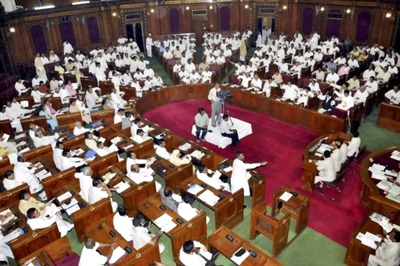
views
Reliance Jio says there is a need for technological, legal and structural reforms for fixed broadband as well as mobile broadband, in India. In response to the Telecom Regulatory Authority of India (TRAI) Consultation Paper on Roadmap to Promote Broadband Connectivity and Enhanced Broadband Speed, Reliance Jio says that innovative technologies, creation of digital infrastructure and strengthening the Right of Way (ROW) rules will help India achieve the goals set by the National Digital Communications Policy 2018.
Reliance Jio says that the ROW rules are not implemented effectively, including at departmental levels and on ground as well. Reliance Jio has identified lack of easy access into buildings and apartments as a major roadblock for the expansion of fixed broadband network in the country. “Mandatory access without charge to each building including households for fibre/copper needs to be ensured,” says Reliance Jio in the submission. There are suggestions that TRAI should make recommendations in that regard to the Department of Telecommunications (DoT) for engagement with the Ministry of Housing and Urban Affairs to make changes to the building code to ensure RWAs provide access to install broadband infrastructure. Reliance Jio offers the Jio Fiber broadband services in India. The new Reliance JioFiber plans start at Rs 399 per month. The new plans include the entry spec Rs 399 plan for 30Mbps speed, the Rs 699 for 100Mbps speed, Rs 999 for 150Mbps speed, Rs 1,499 for 300 Mbps speed, Rs 2,499 for 500Mbps speed and Rs 3,999 for 1Gbps speed. These plans offer unlimited data as well as with unlimited voice calls
Reliance Jio also came down hard on rivals who are still using the 2G mobile networks. “Authority must take cognizance to the fact that some legacy service providers will give any implausible explanations to keep a large number of subscribers trapped in incoming-only, low value but high cost 2G plans,” says the company. Some mobile service providers are believed to be extending the life of 2G equipment in their networks.
It was in July during the 43rd Annual General Meeting of Reliance Industries Limited, where the company pushed for a 2G-Mukt Bharat. Mukesh Ambani, chairman and managing director of Reliance Industries during the celebration of 25 years of mobile telephony in India at the Desh Ki Udaan session in July had said that there is a need for policy reforms to upgrade over 300 million users in India that still use 2G network. “As we take legitimate pride in the achievements of mobility in the last 25 years, this is also an occasion for us to look at the obstacles that have prevented Indian consumers and Indian society from fully benefiting from the digital revolution. Here I specifically referred to the fact that India still has 300 million mobile subscribers trapped in the 2G era. Their feature phones keep them excluded, even from the basic uses of internet at a time where both India and the rest of the world are standing at the doorsteps of 5G telephony. I think necessary policy steps should be taken with utmost urgency to make 2G a part of history,” said Ambani, at the time.
On the issue of the definition of wired broadband in India, Reliance Jio says that the approach to define broadband in the Indian context has evolved over the years. “We agree that in the rapidly changing technological scenario, the threshold speed that is considered to be adequate for defining broadband at one point of time may become insufficient to meet the expectations of consumers after some time,” they say. Reliance Jio says they are not opposed to increasing the threshold limit for broadband at periodic intervals.
The National Digital Communications Policy 2018 aims to provide universal broadband connectivity at 50Mbps for all citizens, 10Gbps connectivity for all Gram Panchayats by the year 2022 and 100Mbps broadband for all key development institutions including educational institutions in India. The mission also wants to enable fixed broadband access to 50% households in India. Reliance Jio says the use of fiber-based technologies has ensured healthy growth of fixed broadband in the country, but there are fears it is not sufficient. The company believes the challenge is to take these subscription levels higher along with higher speeds.
Read all the Latest News, Breaking News and Coronavirus News here




















Comments
0 comment